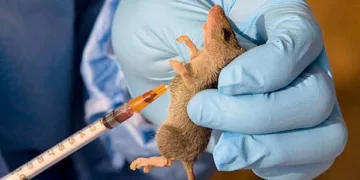June 19th marks sickle cell awareness day. And the fight to eradicate sickle cell is a journey we all must get involved with. I first knew about my genotype in my early twenties and was surprised to find out I was a carrier. Even the government has been involved in this fight, so there is a genotype spot on the driver’s license.
“Sickle cell anaemia is one of a group of inherited disorders known as sickle cell disease. It affects the shape of red blood cells, which carry oxygen to all body parts.
Red blood cells are usually round and flexible, so they move easily through blood vessels. In sickle cell anaemia, some red blood cells are shaped like sickles or crescent moons. These sickle cells also become rigid and sticky, which can slow or block blood flow.
The current approach to treatment is to relieve pain and help prevent complications of the disease. However, newer treatments may cure people of the disease” according to Mayo Clinic.
Sickle cell is not a death sentence hence the reason why we must show empathy to those warriors living with sickle cell. Can you imagine the level of pain they go through? The reason why we must all make sure no other person goes through this pain. And for this to happen we must start with the question: do you know your genotype?
Creating More Awareness for Sickle Cell
Education Campaigns:
Schools and Universities: Integrate information about sickle cell into health education curricula.
Workshops and Seminars: Organize events to educate the public about sickle cell disease (SCD), its causes, symptoms, and management.
Social Media and Online Platforms:
Awareness Posts: Share educational posts, videos, and infographics on social media platforms.
Influencers and Celebrities: Collaborate with influencers and celebrities to reach a broader audience.
“Nigerian singer Adekunle Kosoko, better known by his stage name Adekunle Gold, was born with sickle cell anaemia. According to the singer, “It was painful and hard to deal with. I had a sickness that no one around me could understand.” The singer told people with sickle cell disease that it shouldn’t define them, “Don’t let it stop you from having dreams or reaching your full potential. Dream big and spread your wings! Hope to see you are flying high.” His first album, 2016’s ‘Gold’ reached No. 7 on Billboard’s
World Albums chart” according to Sickle Cell 101
Support Groups and Counseling:
Peer Support Groups: Establish support groups for individuals and families affected by SCD.
Counseling Services: Provide genetic counselling services to couples planning to have children.
Partnerships and Collaboration:
Nonprofits and NGOs: Partner with organisations focused on SCD to amplify efforts.
Healthcare Providers: Work with hospitals and clinics to provide information and resources.
Storytelling and Personal Narratives:
Patient Stories: Share personal stories of individuals living with SCD to humanize the disease and foster empathy.
Documentaries and Films: Produce and promote documentaries that highlight the challenges and triumphs of living with SCD.
Public Health Campaigns:
Genotype Testing Drives: Organize free genotype testing drives to encourage people to know their genotype.
Awareness Months: Participate in or initiate awareness month campaigns dedicated to SCD.
Educational Materials:
Brochures and Posters: Distribute brochures and posters in public places like hospitals, schools, and community centres.
Online Resources: Develop comprehensive online resources, including FAQs, myth-busting articles, and detailed guides.
By implementing these strategies, we can create a more informed and empathetic society that understands sickle cell disease and supports those living with it.
By implementing these strategies, we can create a more informed and empathetic society that understands sickle cell disease and supports those living with it. Let’s take action today to ensure that no one has to endure the pain of sickle cell. Know your genotype, spread awareness, and support the warriors among us. Together, we can make a difference.





